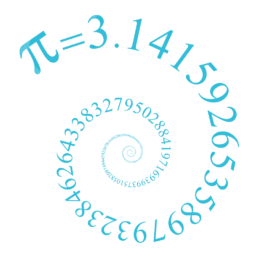FAQ
Yes – worldwide. Please read on for more details.
Yes – in Bournemouth and immediately surrounding area.
Face-to-face tutorials usually take place at my home in Bennett Road, Charminster BH8. At A-level we can also meet at one of the local libraries working around your free periods e.g. Charminster Library which is a short walk from both Grammar Schools in Bournemouth. If you live very close to me (Bournemouth BH8) then I may be able to come to you – please phone or email to double check.
The situation is changing constantly; at time of writing (September 2020) I have moved all tutorials online, but plan to offer face-to-face again for those who would like as soon as the government regulations and my own judgement deem it prudent to do so. I will continue to offer online tutorials for those who prefer.
Sometimes. At degree level maths splinters off into a huge array of areas, some of which I’m familiar with and some not. Please email me with some course specifics and perhaps some specimen questions or lecture notes so I can let you know if I’m able to help..
Yes – and most of my students are A-level.
Being able to both collaborate on the same piece of paperThe social interaction, the specially designated maths venue, and the physical aspect of being able to wave one’s hands to explain shape and space, and the ability of being able to pick up concrete objects like cubes and pyramids for a good look. This becomes less of an issue the more advanced the maths become, as the maths becomes more abstract as the level increases. There is also of course the social element of seeing each other face to face. Both online and face-to-face definitely have advantages and disadvantages.
A good internet connection to go with your laptop, PC or tablet. If your internet connection is struggling then turning off the video so there is less information going back and forth can help. You can write with a mouse, or on a tablet / touch screen then just writing with a finger works extremely well.
OPTIONAL: I have a graphics tablet (in effect a very accurate mouse that looks and behaves like a pen) and some students like to invest in their own (costing £20-£60).
Zoom (or your preferred other video calling software e.g. Google Meet) and Bitpaper. Both are free to use for the student and I can talk you through installing them if you like. Bitpaper is an online collaborative whiteboard; I pay a small subscription but it’s free to use for the student. You'll also receive a personalised URL so you can visit our work whenever you want to review.
Yes but only between July to October each year (so through the summer and in the run up to the 11+ exam).
Yes but only at Higher level. If you are a fairly able mathematician looking to excel then I can certainly help you to achieve your goals. If you are considering maths at A-level then I can certainly help. If you are aiming to sit the Foundation exam (which goes up to level 5 only) then I will usually recommend a colleague whose methods are better suited to this level.
As a rule of thumb: if you know all your times tables and are happy to do a little algebra then we will work very successfully together. But if you will do anything to avoid algebra at all costs and struggle to recall times table facts then my style of tutoring may not work well for you. In this case please ask me to recommend a colleague.
Being able to both collaborate on the same piece of paper. The social interaction, the specially designated maths venue, and the physical aspect of being able to wave one’s hands to explain shape and space, and the ability of being able to pick up concrete objects like cubes and pyramids for a good look. This becomes less of an issue the more advanced the maths become, as the maths becomes more abstract as the level increases. There is also of course the social element of seeing each other face to face. Both online and face-to-face definitely have advantages and disadvantages.
